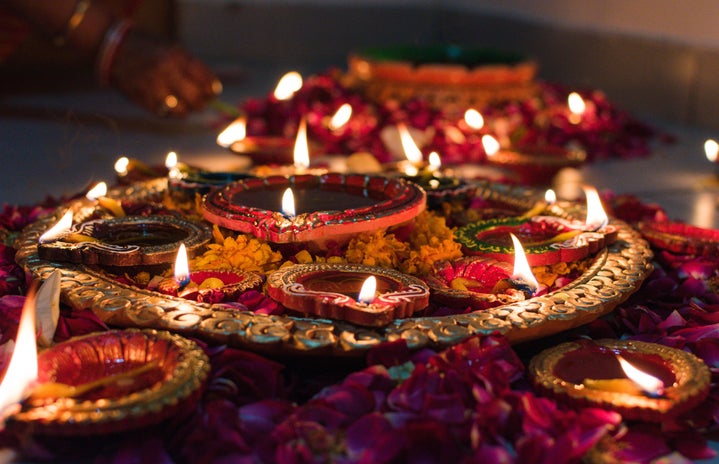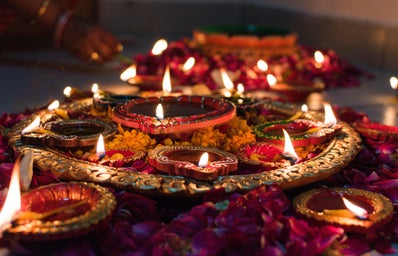As an international student from India, I often find myself missing home. This Diwali, I felt more homesick than ever. I was missing my family, the rituals, making sweets and snacks, dancing to Bollywood tunes with friends, and dressing up in traditional clothing.
Diwali is the biggest festival for Hindus. It is a celebration of the homecoming of Lord Ram after spending 14 years in exile. It is also called the festival of lights. It marks the victory of light over darkness, good over evil, and knowledge over ignorance.
The festival is 5 days long, with each day signifying a distinct meaning. Here are some traditions for Diwali I miss as an international student in the United States:
1. Diwali Cleaning: Deep cleaning homes before Diwali is considered auspicious. It is a way to spiritually cleanse and purify homes to welcome Goddess Laxmi, the goddess of wealth. The weeks leading up to Diwali would be reserved for deep cleaning of homes. I would come back home from school every day and help my grandmother and parents clean the house.
2. Aroma of Sweets: During Diwali, we would always have guests over, either to stay or to visit during the day. My grandmother would start preparing snacks and sweets the week before Diwali and would have everything ready to go before the festivities started. She would put her love and soul into making the most wholesome food for all of us: from chakli, chivda and shakarpara, to gujiya and besan laddoo. These snacks and sweets would be served to guests who came over to meet and wish us for the festival. We would also send them to our relatives and friends’ places. My favorite part was taste-testing the goodies for my grandmother and delivering them across town.
3. Decoration: Diwali isn’t Diwali without the lights, rangoli, and marigold flowers. The word Diwali is derived from the word ‘Deepavali’, meaning an array of lights. Since it is the festival of lights, all celebrants would have lights on their houses. 10-15 days before the festival, my dad and I would go to the lighting store to pick out lights for the house. Every year, we create a new aesthetic for the house. My mother and grandmother would be responsible for picking out the diyasand other light-related decorations. Every day leading up to the main day, everyone would light up diyas and lights in the alley and their front yards. My grandmother taught me the meticulous art of lighting up diyas using ghee. Rangoli is another tradition to welcome Goddess Laxmi into our homes during Diwali. Rangoli is an art form where one makes patterns on the floor using colorful powder, usually made of limestone or quartz. It is believed to bring happiness, positivity, and good fortune into the home. Growing up, I would spend days making Rangolis with my cousins around Diwali. We would always have one big Rangoli and other small ones around the house.
4. Diwali Pooja: On the main Diwali day, celebrants worship Goddess Laxmi, the goddess of wealth. Offerings of light, food, water, and flowers to the goddess are made. This is usually done at homes or offices. Diwali marks the start of the new Hindu calendar. This is the best time to start new ventures and seek the blessings of goddess Laxmi. We would always do an early morning pooja at my parent’s office. My sister and I would start the new accounting books of the office every Diwali to mark the new year with the blessings of the divine power.
5. Family gatherings: It is traditional to go to your relatives and friends’ homes to meet and wish luck and love for Diwali and the new year. After the pooja at our office, we would attend other poojas at our uncles’ and aunts’ offices/homes. In the evening, the kids of the family are taken for the firecrackers. The more modern version of celebrating Diwali is to host parties with friends and family. Diwali parties are something I miss terribly because that was a way for me to meet everyone and celebrate the true spirit of the festival by spending time with loved ones. My friends and I would play cards, dance to Bollywood music, and dress up in our traditional drip.
While being an international student may physically distance me from the festivities back home, the memories and the spirit of the festival remain close to my heart. As I light a diya in my apartment with my friends, I am reminded that the magic of Diwali is not limited to geographical borders, but transcends oceans and brings people together in the celebration of light and love.




